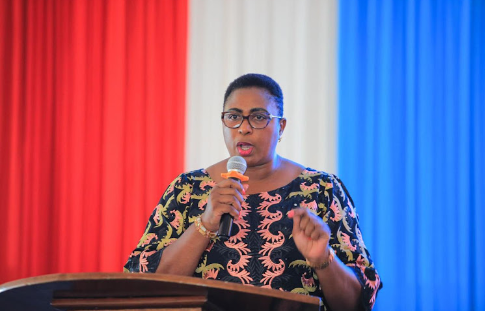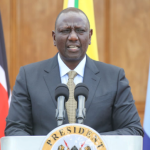Kenya is considering establishing a national Kiswahili-Speaking Day as part of its efforts to promote the language, CS in charge of Gender, Culture, the Arts and Heritage, Aisha Jumwa has said.
“In Kenya, we are discussing the possibility of designating a special day, possibly the 7th of July, when every Kenyan, including the President, judges, civil servants, and teachers, will be expected to speak exclusively in Kiswahili,” she said.
Jumwa announced that Kenya is in the final stages of establishing the National Swahili Council to formulate specific strategies, methods, and policies for promoting and advancing the language within the country.
This initiative includes collaboration with both national entities and private stakeholders engaged in Swahili language development. The goal is to enhance appreciation for the language’s rich cultural heritage and to strengthen its unifying influence across the region.
During the keynote address at the opening session of the 2nd East African Kiswahili Commission International Conference in Mombasa, the Cabinet Secretary emphasized the importance of proactive efforts by East Africans in developing Kiswahili and other African languages to enhance their global competitiveness.
“Kiswahili is spoken by over 200 million people worldwide. This demonstrates that our efforts to promote the language are yielding results and we should continue to advance these efforts,” she stated.
The two-day conference precedes the 3rd EAC World Kiswahili Language Day marked on Sunday, July 7.
The three-day celebrations aimed at exploring the role of Kiswahili and multilingual education in fostering a culture of peace.
EAKC Executive Secretary, Caroline Asiimwe, said the conference aims to provide a platform for stakeholders to share knowledge, research evidence, best practices, experiences and perspectives on the role of Kiswahili education in enhancing a culture of peace.
“Kiswahili is not just a language of communication; it is fundamental to building our society, nations, and the EAC region. The issues discussed at the conference and the recommendations made will be crucial for the Commission to consider and implement in contributing to coordinated efforts to use Kiswahili for sustainable development in the EAC,” Asiimwe said.
“Peace is the foundation of development, and Kiswahili is also a pillar of development. It is encouraging that Kiswahili has been adopted as an official or national language in most EAC partner states and is being taught at various levels of the school system,” she added.
During the event, Nestor Kayobera, President of the East African Court of Justice, underscored the critical importance of officials from partner states’ governments and EAC organs and institutions consistently adhering to the provisions outlined in the community’s Treaty in their duties.
Justice Kayobera reiterated that strict compliance with the Treaty is vital to avoiding unnecessary legal disputes brought before the EACJ, emphasizing the considerable financial resources spent on compensating aggrieved parties resulting from violations.
Joseph Ntakirutimana, Speaker of the East African Legislative Assembly (EALA), expressed optimism about the future global prominence of Kiswahili.
“To achieve regional cooperation, unity, socioeconomic development and prosperity, it is essential to strengthen our interactions through the use of a common language,” Ntakirutimana said.
The Speaker called on partner states ministers of EAC Affairs and other stakeholders to advocate for the adoption of Kiswahili as an official language across the region.
“Kiswahili is poised to transcend borders, becoming a universal language spoken across continents. This would signify a significant milestone for East Africa,” Ntakirutimana said.



